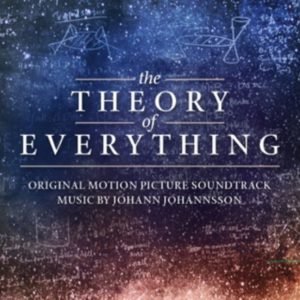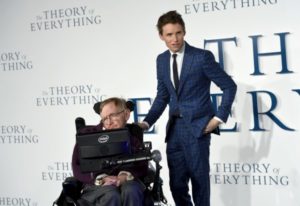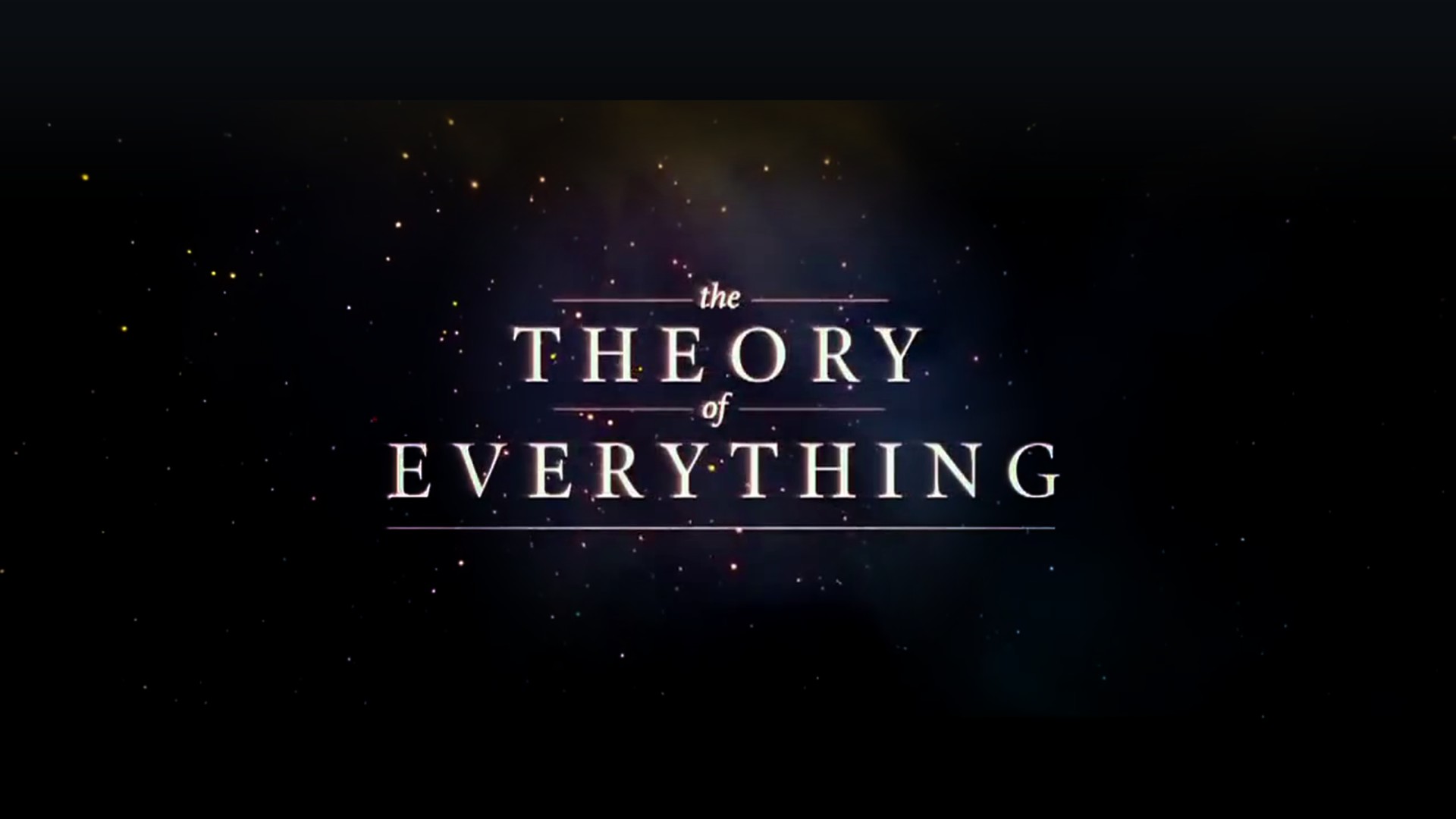WEST LONG BRANCH, NJ– Explanations: we as human being often demand this from the world. It is not enough to just be knowledgeable about a topic,

idea, or theory. The complex questions as to why things are the way they are and how they get there seem to be much more intriguing than just accepting ideas at face value. Is there really an explanation for everything? What if we could create a simple equation that could explain everything in the world? At the opening of the film The Theory of Everything, Stephen Hawking communicates this thoughts to his colleagues at the University of Cambridge, thus beginning his journey of discovering the origin of human existance. As his story began, Stephen Hawking had no idea the struggles and hurdles he would have to endure or that these adversities would ultimately motivate him into becoming one of the most influential scientists the modern world has ever known.
Directed by James Marsh, The Theory of Everything proves to be a film that opens up the audiences’ minds to the often unnoted side of Stephen Hawking’s fight with motor neuron disease, a disease in which the motor neurons in the body that control voluntary movement, such as walking, speaking, and even breathing, deteriorates. The life expectancy for an individual who receives this diagnosis is a maximum of two years. At the beginning of the film, Stephen Hawking, played by British actor Eddie Redmayne, appears to be just another graduate student at Cambridge, striving to study cosmology, or the study of evolution. He meets Jane Wilde, played by Felicity Jones, while attending the University. Jane proves to be one of the strongest characters in the film, despite everyone’s judgment of her being unable to handle “what is coming” regarding Stephen’s condition. What one may not realize is the normality of Hawking’s early life through the scope of his relationship with Jane. As Stephen attempts to advance his theories of the universe’s origin, his growing illness guides the plot of the film down a path that is both gut-wrenching and revolutionary. The film provokes various emotions from audiences as Stephen fights his expected odds and eventually triumphs into the brilliant scientist we admire today.
With regard to the casting of this film, not one actor in the industry could have pulled off such a dazzling and remarkable performance as Eddie Redmayne. Aside from the fact that he resembled a younger version of Stephen Hawking, the precision of Redmayne’s body movements to mirror those of Stephen’s was done in such a realistic manner. Redmayne embraced his role and transformed himself so vividly into Stephen that is it though simply “acting” is an understatement. Redmayne doesn’t just act like Stephen, he becomes him. The subtle manner in which Redmayne shows symptoms of motor neuron disease early in the film, which eventually leads to the overtaking of his voluntary movements later on, is absolutely incredible. Going from just simply knocking over a cup and having difficulty picking up a pen, the development of the disease starts out in more unnoticeable ways. However, the sudden stumbling that Stephen exhibits until he finally falls on the concrete, delivers the basic illustration of the evolving disease.

The director used symbolism to present the life and achievements of Hawking, fusing his theories and life journey into one interwoven metaphor. To give some background on Hawking’s theories, he believed that particles that fall into a black hole have a negative density that causes the black hole to get smaller and smaller until it eventually “disappears.” According to The Guardian’s scientific correspondent Alok Jha, in those few moments after, the black hole explodes with the energy of one million nuclear bombs, thus creating the universe. Knowledge of these aspects through the portrayal of the film that the director sets up, gives way to the figurative meaning of the film, in which every person has their own beginning from one impactful event. The film infers through Hawking’s scientific findings that there is a “bang” that triggers the moment in a person’s life that alters their perspective on everything from thoughts all the way to the realization of one’s full potential. In Stephen’s case this symbolic “black hole explosion” was in the instance where he fell for the first time, recognizing his illness or his first kiss with Jane, recognizing his eternal love for her. Depending on how one interprets the film, Hawking’s theory seems to display a ray of truth regarding beginning stages in a person’s life . As a result, a person can experience a number of these beginnings on everything from love to achievement.
As Oscar nominations are right around the corner, The Theory of Everything is sure to be selected as one of the top contenders regarding acting performances or even cinematography. The technique the film utilizes by using the backwards motion of time is done in such an eloquent manner that mirrors Hawking’s scientific impressions in which the only way to see the beginning of time is to move backwards; just as a black hole does before it explodes into a form of creation. The rich effects of the fireworks, for example, when Stephen and Jane first meet make the film visually appealing as well as emotionally appealing to those who appreciate the use of aversive events to depict ultimate victories. As a result, The Theory of Everything is quite deserving of at least a nomination if not a win from the academy.
With action and thrilling films often prevailing in the box office, The Theory of Everything is a refreshing experience that brings out the often overlooked aspect of the abilities and potential of human beings today. The insight it provides on Stephen Hawking’s fight to beat his illness as well as his personal life is eye opening. Both inspirational and moving, the film is recommended for audiences who can appreciate the beautiful aspects of a story that don’t need to hide behind special effects or computerized visuals. As Stephen Hawkings said “There should be no boundaries to human endeavor. We are all different. However bad life may seem, there is always something you can do, and succeed at. While there’s life, there is hope.”




